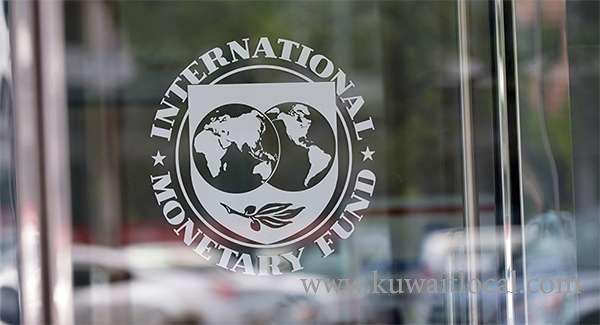Latest News
- Court Sentences Bank Employee To 5 Years For Embezzling 100,000...
- Fake ‘Sheikh’ Sentenced To 2-yr As Court Overturns Verdict
- Justice Ministry New Service On The Sahel App
- Ministry Probes 68 Cases Of Illegal Charity, Funds Collection
- Globally, Kuwait Is Among The Top Consumers Of Incense And Oud O...
- Decrease Seen In Foreign Investment
- Kuwait Customs Seized 2 Containers Laden With Tobacco At Shuwaik...
- Unpaid Salaries, Accountant Beaten Up By Workers
- The Sahel App Was Not Hacked, A Spokesman Claims
- Four Expats Arrested For Stealing Copper Cables Worth 60,000 Din...
- Indian National Died In Abdalli Car Accident
- Work Permits And Foreign Worker Transfers Are Amended By PAM
Imf Concludes 2019 Article Iv Consultation With Kuwait

The Executive Board of the International Monetary Fund (IMF) concluded the 2019 Article IV consultation with Kuwait including the Financial System Stability Assessment (FSSA) of the country.
According to IMF’s website picked in Kuwait on Wednesday, the growth has resumed and the current account rebounded thanks to higher oil prices. Hydrocarbon output rose by 1.2 percent in 2018 after contracting a year earlier.
Buoyed by a rebound in confidence and government spending, non-oil growth has accelerated to 2.5 percent. After the first deficit in more than two decades in 2016, the current account shifted back into surplus in 2017 and reached an estimated surplus of 12.7 percent of GDP in 2018. Infl ation fell to a multiyear low of 0.7 percent due to falling housing rents, easing food prices, and a strengthening dinar, it said. While the overall fiscal balance has improved, financing needs remain large. Higher oil revenues and investment income boosted the overall balance.
However, the underlying fiscal position-non-oil balance less investment income in percent of non-oil GDP-indicates a modest loosening in FY17/18 and FY18/19, IMF added. Fiscal financing needsoverall balance after compulsory transfers to the Future Generations Fund (FGF) and excluding investment incomeremain large. Delays in the passage of a new debt law have rendered the government unable to issue debt since October 2017. As a result, it has had to draw on the General Reserve Fund assets for financing.
Recovering
The banking sector reports sound indicators and credit is recovering from a slow start in 2018. The systemwide capital adequacy ratio reached 18 percent in September 2018, and liquidity ratios were comfortably within regulatory requirements.
Profits rose and asset quality improved, with NPLs net of specific provisions falling to a historical low. The Central Bank of Kuwait (CBK) raised the repo rate, a benchmark for deposits, several times but has kept the policy lending rate at three percent since March 2018. Private sector loans grew 4.1 percent year-on-year in December 2018 on the back of household, construction, and oil sector borrowing, it said.
Meanwhile, Executive Directors noted that growth is expected to strengthen and the underlying fiscal position to gradually improve over the medium term. Given the volatility of oil prices and the exhaustible nature of oil resources, directors underscored the need for timely and well-sequenced fiscal and structural reforms to reduce Kuwait’s dependence on oil, boost government saving and create more private sector jobs. They also called for deeper fiscal reforms to ensure adequate savings for future generations. They encouraged the authorities to tackle spending rigidities and increase non-oil revenue while boosting capital outlays to improve infrastructure and raise potential growth.
Trending News
-
 Eid Al Fitr 2024: Crescent Moon Not Sighted In Sau...
08 April 2024
Eid Al Fitr 2024: Crescent Moon Not Sighted In Sau...
08 April 2024 -
 Kuwait Implements Home Biometrics Services Ahead O...
14 April 2024
Kuwait Implements Home Biometrics Services Ahead O...
14 April 2024 -
 When Will Eid Al Fitr 2024 Take Place In Qatar, Ba...
08 April 2024
When Will Eid Al Fitr 2024 Take Place In Qatar, Ba...
08 April 2024 -
 On Sunday, The Meteorological Department Warns Of...
07 April 2024
On Sunday, The Meteorological Department Warns Of...
07 April 2024 -
 Kuwait Airways Provides Update On Flight Schedule...
14 April 2024
Kuwait Airways Provides Update On Flight Schedule...
14 April 2024 -
 Gathering For Eid Al-Fitr Prayers: Kuwaiti Citizen...
10 April 2024
Gathering For Eid Al-Fitr Prayers: Kuwaiti Citizen...
10 April 2024 -
 Winners Of Kuwait National Assembly 2024 Elections
06 April 2024
Winners Of Kuwait National Assembly 2024 Elections
06 April 2024 -
 Kuwait Airways Introduces Convenient Home Luggage...
15 April 2024
Kuwait Airways Introduces Convenient Home Luggage...
15 April 2024 -
 An Egyptian Expat Dies At Kuwait's Airport
11 April 2024
An Egyptian Expat Dies At Kuwait's Airport
11 April 2024 -
 Bay Zero Water Park Kuwait: Summer Season Opens Ei...
11 April 2024
Bay Zero Water Park Kuwait: Summer Season Opens Ei...
11 April 2024












Comments Post Comment